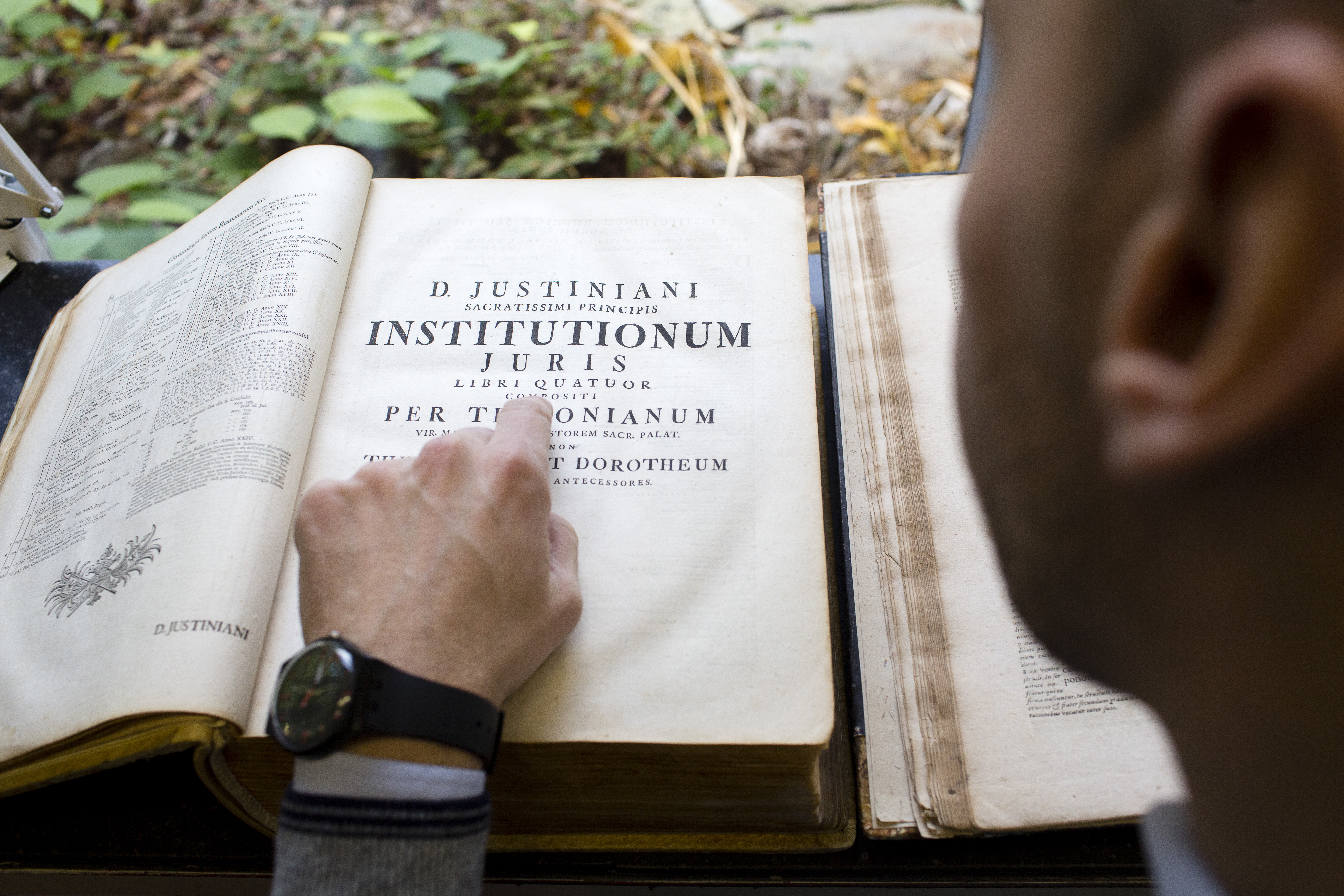DFG-CAPES call to strengthen German-Brazilian cooperation in fields of law
(04.02.19) During its early development, the Brazilian legal system was subject to a strong German influence – a relatively little-known fact dating back to Roman Law, originally aligned with German legal norms. This jurisprudence also applied in other areas, including modern-day Portugal. Colonisation then brought these concepts and institutions to Brazil, where they continued to evolve over time. Brazilian civil law still contains references to the German Civil Code (BGB) drawn up in the 19th century, clearly illustrating the connection with German jurisprudence.

The Brazilian legal system has adopted many German legal norms - a good reason for bilateral cooperations in fields of law
© DAAD/Jan Zappner
This historic link has brought jurists in both countries closer together and in March last year they met up at a bilateral workshop in Bonn which provided an opportunity for discussions and the creation of new perspectives for an intensification of research cooperation. “In view of this clearly identifiable interest, together with our Brazilian partner organisation CAPES, we have published a call for funding of projects in the fields of law. Projects can be funded for up to four years and should contribute towards the formation of networks,” explained Dr. Dietrich Halm, head of the DFG department for international cooperation with Latin America.
In previous years, significant cooperation potential in this area was already visible in the form of newly created bilateral networks, which are now providing a starting point for the new initiative. “In all fields of law, German-Brazilian networks and individual cooperations between researchers from these two countries already exist. There are also some strategic partnerships in this area between universities in Germany and Brazil,” commented Halm.
Favourable cooperation conditions
In Germany, the University of Münster is worthy of mention in this respect: law fields are one of the topic areas in its strategic partnership project with the University of São Paulo (USP) set up in 2015 and supported by the German Academic Exchange Service. Entitled www.usp, the initiative has given rise to an agreement on joint doctoral supervision as well as workshops and summer schools in the subject areas of business and tax law. The first funding period was successfully completed last year and a second has already been approved. One of the focuses of the future joint research activities is the area of “cities and climate”.
The University of Münster’s Institute for Information, Telecommunication and Media Law (ITM) and the Study Group on Copyright and Industrial Rights (GEDAI) of the Federal University of Paraná also organised a workshop on “New Technologies and Law” from 16 to 19 January in Münster. In the course of this event, researchers from both institutions and guests from other universities discussed common topics and interests as well as interfaces for bilateral activities.
One of the Brazilian universities with the strongest network with Germany in fields of law is the Pontifical Catholic University of Rio Grande do Sul (PUCRS). In 2018, together with the Federal University of Santa Catarina (UFSC) and supported by the German House for Research and Innovation São Paulo, it organised the 8th International Symposium on Justice in Florianópolis.[Neidhardt1] The event was also accompanied by a Humboldt Kolleg – an initiative of the Alexander von Humboldt Foundation designed to promote interdisciplinary networking among researchers. In his presentation, Prof. Dr. Ingo Sarlet, coordinator of the Faculty of Law at PUCRS, emphasised, among other aspects, the close relationship between Brazilian and German jurisprudence.
Law fields play an important role in the Brazilian research sector. According to the most recent CAPES study from 2017, there are 99 master's and doctoral programmes throughout Brazil, with the majority in the south and south east of the country. Most courses are offered by private institutions, and a third are run by public universities. The report showed an improvement in quality in comparison with previous years. For example, national professional publications are increasingly being used as a forum for exchange between Research Units and interdisciplinarity is being considered to a greater extent than before - developments which are also interesting for international cooperation.